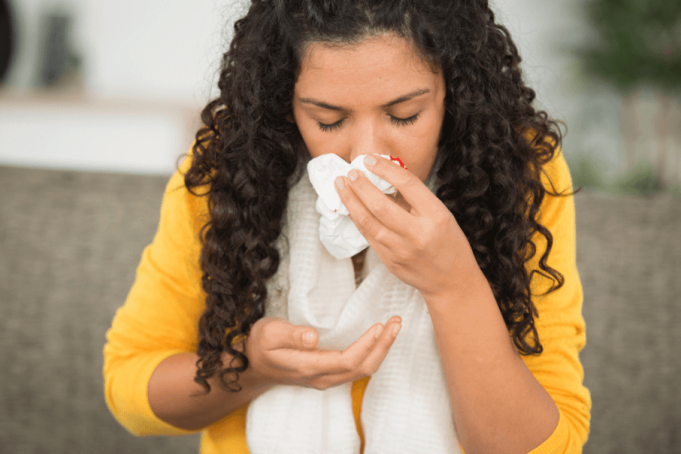Nasal bleeding is bleeding that originates from the nasal cavity mucosa, which has extreme regional vascularization. In most cases, bleeding from the nose, also known as epistaxis, does not occur directly due to an illness. There are factors at certain times of the year that can influence the occurrence of this nose bleeds, such as a lower temperature and a lower humidity of the air, causing the nasal mucosa to dry out and the veins found in the structure of the nose to rupture, resulting in bleeding. It is important to note that the occurrence of nasal bleeding is common, but it is not normal, and each case must be analyzed by an otolaryngologist for better resolution of the problem.
Before knowing the prevention methods, it is important to understand the most common causes for the occurrence of nasal bleeding, which are:
Trauma
This is when a nosebleed occurs due to force upon the structures on and adjacent to the nose such as the paranasal sinuses and middle ear. In addition, traumas in the region can arise when we stick our fingers in our noses and accidentally damage the mucosa of the nasal passage. This is especially common in children.
Inflammation
Problems such as chronic rhinosinusitis and allergies can alter the protective mucus in the nostrils, which can facilitate the entry of bacteria and fungi that form crusts on the walls of the structure, exposing blood vessels and causing nosebleeds.
Foreign bodies
This issue occurs mainly with babies and children, as they can insert objects in the nose, such as, for example, small toys, pieces of food, or dirt, which can cause nosebleeds and difficulty breathing. It is important to avoid having small objects within reach of children and always having an adult around, especially during meals.
Anatomical changes
Some changes in the nose region can cause bleeding, such as the deviated septum and the change in airflow in the nasal cavity.
In addition to these factors, the inhalation of chemicals and/or pollutants, malnutrition, uncontrolled arterial hypertension, alcohol and/or smoking, and sudden changes in temperature can also cause nosebleeds.
How to treat and prevent a nosebleed
To avoid this type of discomfort, some precautions can be taken, especially in children, such as keeping nails short and teaching them not to put small objects in the nasal cavities.
In general, care must be taken in the cold seasons of the year, when the incidence of nasal bleeding is greatest. Therefore, try to keep the nasal mucosa moist – moistening it with saline solution, using a humidifier, wearing warm clothes, and hydrating yourself well, avoiding cigarette use and alcohol intake.
Try to prevent trauma to the nose as it is essential in preventing nosebleeds, but if it does occur, staying calm is important. In case you experience trauma to the nose, the best course of action is to keep the head slightly tilted forward, making a compression with the fingers to cover the nose for approximately 5 minutes. Avoid lying down and/or putting your head back, as the blood can reach the throat area, be swallowed, and cause vomiting or be aspiration into the lungs, which can cause serious, even life-threatening, problems.
Bleeding that occurs due to dryness of the nose can be prevented with the use of air humidifiers in addition to proper moisturizers passed into the nostrils. The use of nasal sprays with saline solution can help moisturize the nose. It is important to ask the doctor which moisturizers and sprays can be applied to the inside of the nose.
The treatment for nosebleeds depends on each case, one of the main procedures being to locate the bleeding point and heal it. When the exact point cannot be located, tampons can be used to try to compress the injury.
When you have nosebleeds, it is important to seek medical help to have all your doubts cleared and to avoid more serious problems. Need to schedule an appointment and still don’t know where to go? Get in touch with us! We’d love to help you find a suitable treatment.
Reference
Raleugh Capitol. What causes nosebleeds? And how can you prevent them? 2020.
Retrieved from: https://www.raleighcapitolent.com/blog/what-causes-nosebleeds?entryid=141&tabid=89
Valencia Higuera, Elaine K. Luo, What Causes Nosebleeds and How to Treat Them, 2019.
Retrieved from: https://www.healthline.com/health/nosebleed

